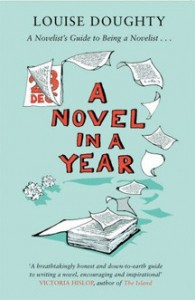What is the difference between a novel and a short story: the development of character…the characters change in some way. The novel I am writing will take place when my main character is 17 years old. Through a series of flashbacks, the reader will get insight into various events from the protagonist’s past. The main character has no idea of who she is or of her heritage, but she learns this throughout the novel – in this way, she is changed: she learns who she is, she accepts and steps into this knowledge.
Tag Archives: Novel in a year
Keeping notes
It’s a great idea to keep notes when you are writing. Ideas take time to percolate, like coffee brewing, and while they do, you can come across any number of idea gems, story gold, and factual diamonds that can be long forgotten when you finally sit down to write that story.
Building interest
Today I am researching again, this time to add richness (and hopefully more content) to my novel. I’m looking at one aspect of the story and researching that to build background knowledge and depth. The focus of my research is the grey wolf. I want to bring detail about the wolf into my writing in some way.
More than writing
My writing has been slowing up a little and becoming more of an effort than when I first began. I started writing 1,500 words each day, but after almost a week, this took a down turn and even banging out 300 words seemed immensely difficult. I have tried all kinds of things to get back on track, to fish for more ideas, etc. etc. That is not to say all of the work I have done has been in vain – quite the contrary. I have a basic story plot, I created a concept for my novel and I have been developing my characters. What has helped me the most so far though is time.
Creating character
I have been creating more characters for my novel and, given the novel has some historical basis, I have been researching too. History is rife with interesting tales. As a writing activity, select a place, breifly research its history, its culture, etc., and write a brief character profile on one of its previous inhabitants – in whatever format you want (dot points, a list of characteristics, a character biography paragraph. As you write, try to find the ‘voice’ of the character. It is a useful exercise to write this for a character who is completely different to you, trying to write in a voice that is not your own, but that belongs fully to the character.
Concept writing activity
Generating a concept for your writing
Novel writing is not a task to be scoffed at or taken lightly. It is a massive undertaking! Having a robust concept can help you keep a strong focus while taking plot deviations, encountering numerous characters and creating multiple twists and turns.
“I hold the world but as the world…
A stage where every man must play a part,”
Shakespeare, The Merchant of Venice
What is a concept?
Novel writing is not a task to be scoffed at or taken lightly. It is a massive undertaking! Having a robust concept can help you keep a strong focus while taking plot deviations, encountering numerous characters and creating multiple twists and turns.
Writing from what you know, continued.
 “…cherry-pick the interesting incidents and emotions from your real life and put a fictional spin on them or give them to a fictional character with an agenda entirely separate from your own.” Louise Doughty tells us. You can do this with any aspect of our life and the more fictionalised your writing becomes, the less autobiographical. Write from what you know until you have enough writerly confidence to write what you don’t know, to rely on imagination alone.
“…cherry-pick the interesting incidents and emotions from your real life and put a fictional spin on them or give them to a fictional character with an agenda entirely separate from your own.” Louise Doughty tells us. You can do this with any aspect of our life and the more fictionalised your writing becomes, the less autobiographical. Write from what you know until you have enough writerly confidence to write what you don’t know, to rely on imagination alone.
Writing from what you know
Another Louise Doughty inspired piece of writing about being lost, physically and metaphorically. It is based on an incident in my life, but overly exaggerated. Actually, reading it back I really dislike the writing I have done (perhaps because most of my writing is in 1st person and this is in 3rd person – but this was intentional, to replicate the distance the character feels from those around her and from herself). However, the purpose of this blog is not to publish only highly edited and re-worked posts, but to give you a sense of ‘writing in process’ over the course of writing my novel…and it is my hope that seeing my less than brilliant writing will also inspire you to have a go at writing yourself.
Writing characters
Author, Louise Doughty encourages writers to “…start to build up a body of material-anecdotes, notes, stories.”
Any writing you do can be applied to your character(s), to build depth of character, to help you understand their motivations, their thoughts, how they act, what they sound like, how they respond to their environment. 1) Take a previous piece of writing and give it to one of your characters. Re-write the piece. 2) Try sitting in a café and jotting down overheard conversations, then giving some of this to your characters. Re-write the conversation with your characters as the speakers. 3) Write a diary entry of a day in your life, then give this day to one of your characters. Re-write the entry as though it was a day in the life of your character.

